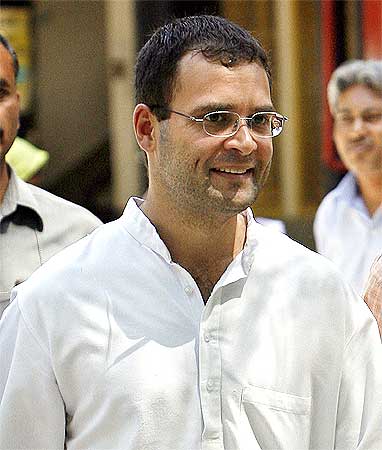
Smart rulers of old knew what they needed: ministers who knew the work and the details and could keep the administration running and revolt at bay. This would leave the king free to view the big picture and set the chief goals (and to enjoy himself while he lasted). This was especially true of newcomer kings, such as the early Muslim rulers of India, who started with a clean slate in a strange, but very rich, land.
One problem with being new to the kingdom was that, at least at the top of government, a certain amount of inventiveness which a ruler might possess needed to be paired with a thread of continuity with the incomers' own original institutions from their homeland. In other words, they came with soldiers, but once the kingdom was won, they needed experienced administrators.
Text: Rrishi Raote
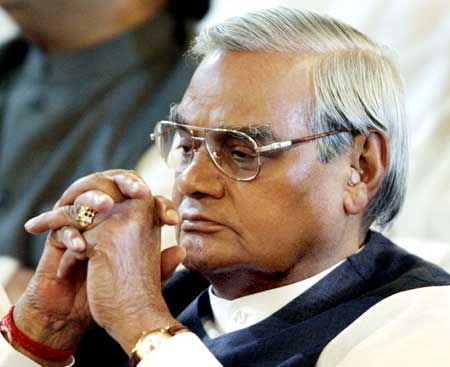
Perhaps it's that kind of time again in India. Which is not to say that this latest election has seen any sort of revolution, but that it shows that the political class, while still padded with old warriors, may find itself turning increasingly to a new sort of administrator. Someone like Ibn Battuta, perhaps, the 14th-century Moroccan jurist and adventurer who picked up most of his learning, some of his manners, and a great deal of useful insight, news and political savvy on the long road between home and India, where he entered the service of the great Muhammad bin Tughluq.
Ibn Battuta had travelled through perhaps the best historical equivalent of our own globalised world, the trans-continental 14th-century Islamic civilisation. Like our own world, it had a single universal medium of communication Arabic which was the main language of culture, government, commerce and even science. Like ours, it had a single generally accepted international law and a dominant political theory.
Any man as learned, experienced and well-travelled as Ibn Battuta was a valuable catch for the rich-but-arriviste sultans on the fringes of the Islamic world, who were always on the lookout for able officials and quality courtiers to boost their performance and legitimacy.
In our own era of globalisation, is it possible that we, the electoral sultans of our times, can draw a link between global economic, cultural and social forces and the kind of leaders we choose? The most visible and favourably remarked-upon of our politicians since the late 1980s have been men and women like Rajiv Gandhi, Atal Bihari Vajpayee, P Chidambaram, Madhavrao Scindia, Kamal Nath, Jaswant Singh, Naveen Patnaik, Rajesh Pilot, Sheila Dikshit, and so on who won elections often from rural constituencies yet appealed to urban citizens and delivered reasonably effective administration while in ministerial office.
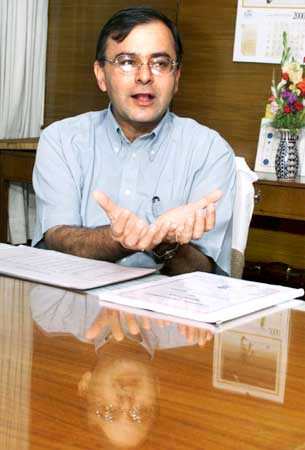
And that's just the last generation: their offspring (and a few others) people the ranks of the next battalion of suave, culture-straddling politicos men and women like the junior Gandhis and Scindias, Supriya Sule, Milind Deora, Dayanidhi Maran, Sachin Pilot, Dushyant Singh and Sandeep Dikshit, but also older and more experienced ones like Arun Jaitley, Kapil Sibal, Shashi Tharoor, Mani Shankar Aiyar and so on.
Often thanks to the advantages conferred upon them by their powerful parents, they come armed with advanced degrees from Western universities, fluency in English, and perhaps even experience in the corporate world or as entrepreneurs or professionals.
By comparison, the old-school politicians, those like Devi Lal and Om Prakash Chautala armed with rural votes and votebanks, the coalition-era "caste warriors" Lalu Prasad Yadav, Mulayam Singh Yadav, Mayawati, the Gowdas and others and the trade unionist leaders like George Fernandes have begun to look less and less attractive as rulers, no matter how well-respected they may be or how entertainingly they speak. They are still around, but this time they got fewer votes and seats than they expected.
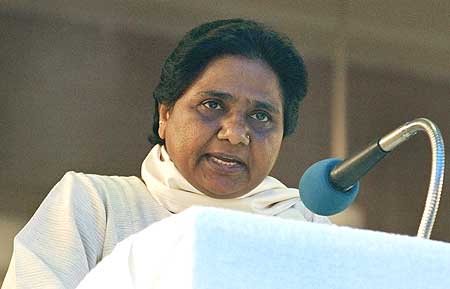
They should not be so surprised, because the ground has been shifting out from under them for a while. Blame it on market liberalisation and globalisation, the twin phenomena which in India as elsewhere have changed nothing more than they have boosted our aspirations.
Perhaps those aspirations cannot now be contained within caste the collective, vicarious satisfaction of being 'on top' that Mayawati, for example, has enjoyed the fruits of or even class boundaries. No, now individual Indians everywhere seek mobility and a free hand, to do for themselves what once they might have left to the state even though the state's support is, of course, perfectly welcome.
With borders lowered, India is no longer as insulated as it used to be from events and currents elsewhere. Less independent, nevertheless the better off for it, we depend on our policy-makers to act wisely and, above all, act fast and ruthlessly, to safeguard our interest at every forum where it is at stake, anywhere in the world. That is where nations now meet not at territorial borders (note how even the rhetoric centred on Wagah has faded?) but at the trade and climate negotiations around the world.
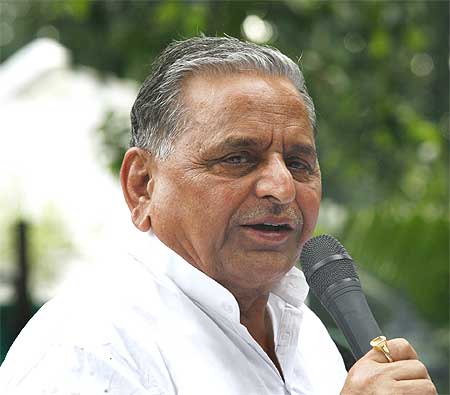
Therefore we must elect representatives who can impress the foreigners, be stubborn, assertive and tactical in favour of special provisions for India while yet keeping in mind our allies, the common international good and long-term consequences. And, at a pinch, instead of merely responding to currents from outside, our leaders should enable Indians to send out some waves of change of their own.
Which may be why there was such appalled derision when Mulayam Singh was quoted before the elections saying that he was not in favour of English and computers. Every parent, urban or rural, who sends a child to school wants the child to learn English and how to use a computer. Poor parents willingly abandon free state schools in rural areas in favour of paid private ones, just so that their children can learn English.
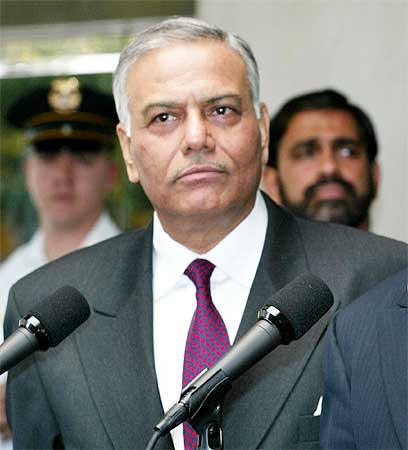
English is a passport to betterment not only for the lower classes even politicians do better with it. Compare, for instance, the party spokespersons on English and Hindi new channels: where in English the inarticulate yelling of the last few years has toned down now, on Hindi channels it is alive and well. The difference is one of class. Party politicians like Abhishek Manu Singhvi, Jairam Ramesh, Balbir Punj, Yashwant Sinha and Arun Jaitley and others quite simply make a better impression even if they occasionally, fatally, say more than they should.
Marginal as English may seem in a country where only a tiny fraction of the people use it daily and extensively, it is intensely aspirational. And voters elect their leaders out of hope of improvement, and because in those leaders they see something of their own dreams embodied.
As aspirations have changed subtly, so has the profile of the politician. He is no longer there to intercede with the state on his voters' behalf, he is there to free people's hands, to build the basic infrastructure which enables them to succeed on their own. It is a pattern that fits well with the traditional narrative of the individual succeeding despite rather than because of what the state does.
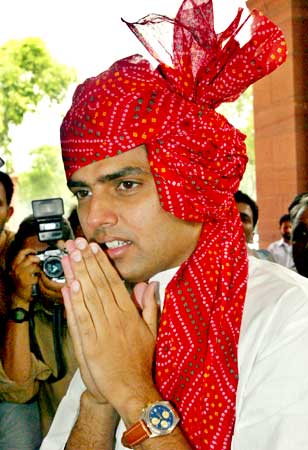
Other nations, including a number of India's peers, learnt this lesson a long time ago: as the sociologist Ashish Nandy said on TV recently, in democracies across the world politics is no longer about ideology, it's about service delivery. Countries like China, Singapore, Taiwan and Korea turned their authoritarian political systems to advantage by actively developing technical expertise among their ruling classes.
Unlike in a democracy, the rulers did not have to look like the ruled. They have been able to think long-term, beyond the short horizon of elected governments. By enabling their citizens to make themselves rich, these ruling classes have put off dissent.
After independence, India's elected leaders a group of educated, English-speaking, professional men helped write and enact our Constitution. After that founding generation passed (and Nehru held on for as long as he could) later leaders learnt to use the political system in ways other than were intended. This is a historical pattern: high idealism at foundation, cold pragmatism later on; until cynicism turns to anger and idealism rises again.
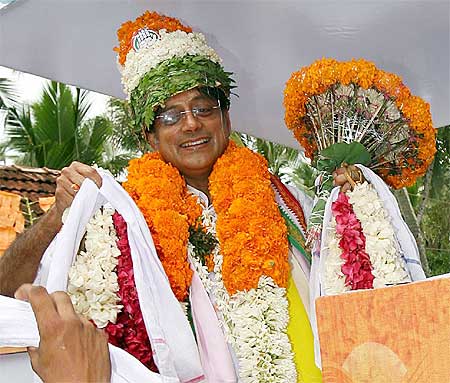
There are signs that the pendulum is swinging away from those of our elected leaders who merely exploit the system to those who can promise something more than the system. Not only the election results, which have given us one of our youngest and most cosmopolitan parliaments ever, but also the accelerated nature of Indians' aspirations show that we won't be content to wait.
Old slogans will fall on sceptical ears: when a farmer in India can access the media and know just how he is economically affected, for better or worse, by causes in distant parts of the world, he will know what kind of politician can help him make the most of it, fast and it's not the old warrior and son of the soil but one who, like the more sophisticated rising stars of the present, can be both familiar as well as foreign.
Change is in the air: if Barack Obama benefited from the hunger for renovation in America, so have members of the latest Lok Sabha slowly, so far, but apparently inexorably. The common ground is globalisation, and the fact that now a national government must act far beyond its own borders, and in collaboration with others, to benefit its citizens. Its leaders must therefore have something in common not only with the voters but also with leaders from other lands; and after all, the same thing is happening to their constituents.
Plato, when he defined the ideal republic, like the ideal person, as a system in which reason was placed over instinct a ruling class of philosophers guiding the destiny of the population was talking about a polity nothing like our own democracies. Yet now that we have a technocrat king in Manmohan Singh, and live in times that require our rulers to be international as well as electable, he will need the polished men and women about him who, like Ibn Battuta in the 14th century, are at home everywhere.